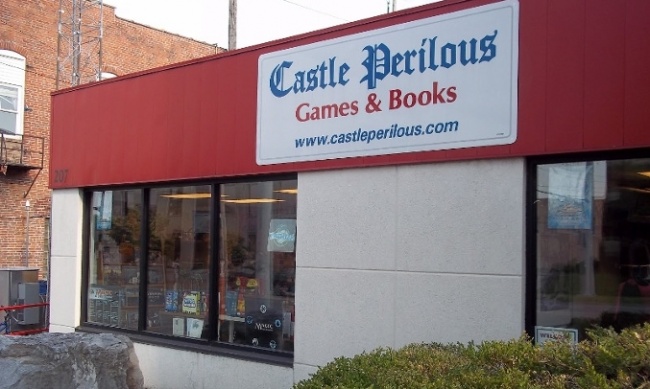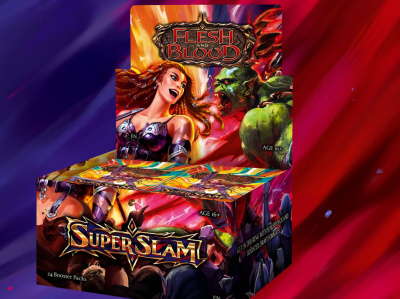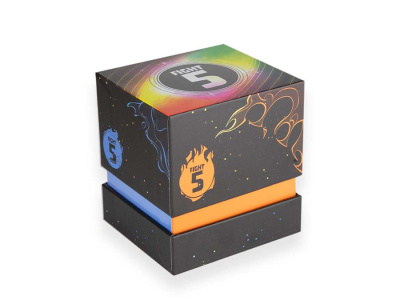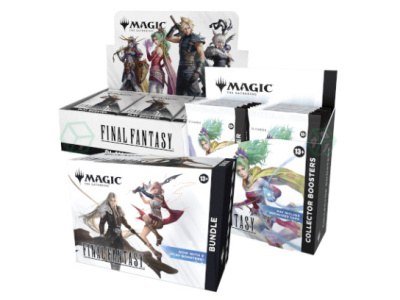Rolling for Initiative is a weekly column by Scott Thorne, PhD, owner of Castle Perilous Games & Books in Carbondale, Illinois and instructor in marketing at Southeast Missouri State University. This week, Thorne looks at another factor affecting consumers' decision-making.
In last week’s column I discussed the choice paradox and why offering consumers a virtually unlimited number of choices leads them/us to actually restrict our choices much more severely. This is one component of decision-making theory called the "familiarity heuristic" (If you want to refresh your memory on the decision-making process, take a look at this column from last October). Essentially heuristics are internalized decision rules that we use to simplify the decisions we make. "I like pizza" is a heuristic as is "Nike is a superior brand" or "I prefer to play Power Grid on Saturday afternoons." They are all internal guides we use to aid us in deciding, otherwise our every waking hour would be consumed with trying to make choices and none of us want to spend a lot of time trying to decide between Pokemon Sun and Moon or Breakthrough.
However, in the cases where we have not developed an internal heuristic to aid us in making decisions or if we are in an unfamiliar situation or faced with a unfamiliar product that we have to decide whether to purchase or not, there are decision-making patterns that consumers have developed over time that have proven common enough that behavioral economists have given them names. One of these is the "familiarity heuristic." The familiarity heuristic says that given two or more choices, the one that is most familiar to the consumer is probably the right choice. This was especially brought home to me recently in a sports marketing class I teach.
The university schedules the class during the spring so we get to look at the frenzy leading up to Super Bowl Sunday from a marketing point of view. I always offer the students extra credit if they provide me a prediction of which team will win the Super Bowl. Given that the points will slightly affect their grade, it is worth their while to choose which team they actually think will win, not the one they will root for during the game. I have students who will spend a lot of time analyzing team statistics and I have foreign students who have never seen a game of American football in their lives.
Statistically, and by the oddsmakers, the two teams, the New England Patriots and the Atlanta Falcons, were pretty even, with a projected point spread of about four points. When I asked the students who they wanted to win, overwhelmingly they responded the Falcons. However, when they turned in their predictions, 90% of them, even the foreign students with no knowledge of football, predicted the Patriots would win, which they did. Why? Familiarity. In general, if we are asked who will win in a contest, we will pick the person with whom we are already familiar. Why? Because we have probably heard of them because they have performed well in that area before. Superior performance begets recognition.
Why is there excitement over the Final Fantasy TCG when almost no customer has ever seen a deck of the cards? Familiarity. All of them have heard of Final Fantasy, piquing an interest in the card game and a desire to see it. Will they continue to want to play it after the first go? That’s an internal heuristic developed in each consumer.
The opinions expressed in this column are solely those of the writer, and do not necessarily reflect the views of the editorial staff of ICv2.com.

Column by Scott Thorne
Posted by Scott Thorne on February 26, 2017 @ 4:27 am CT
MORE GAMES
New 'Flesh & Blood TCG' Booster Set
July 3, 2025
Legend Story Studios announced Super Slam, a new Flesh & Blood TCG booster set.
New Riff of the Classic Game of War from Chip Theory Games
July 3, 2025
Chip Theory Games will release Fight Five, a new card game, into retail.
MORE COLUMNS
Column by Rob Salkowitz
June 30, 2025
Columnist Rob Salkowitz talks to a mid-sized publisher who told him we are at "DEFCON 2, if not DEFCON 1."
Column by Scott Thorne
June 30, 2025
This week, columnist Scott Thorne discusses sales on the Final Fantasy set and his experience with Games Workshop's policies on breaking release dates.








